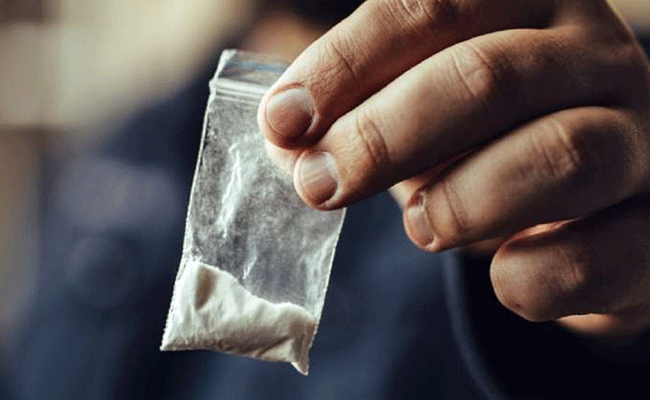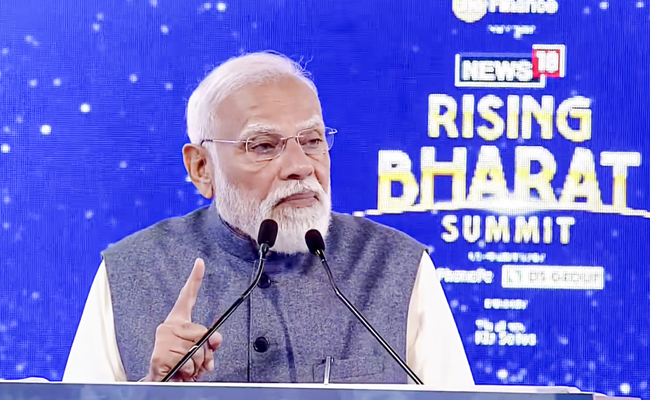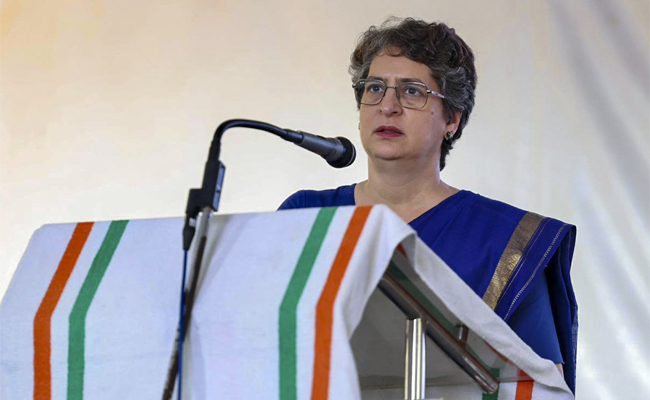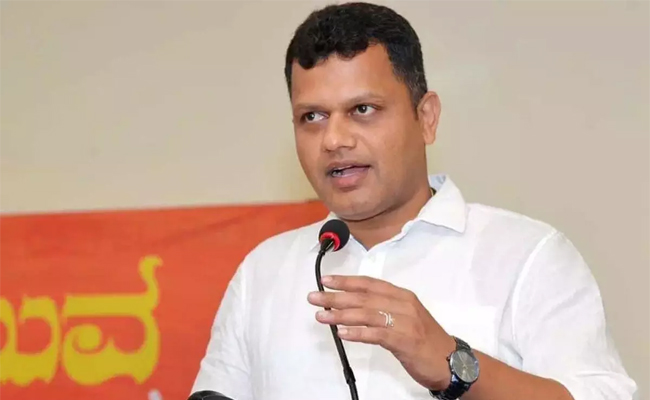Mangaluru (PTI): Mangaluru, a major educational hub in south India, has of late been in the news for the wrong reasons, with the arrest of a few medical practitioners and medical students on charges of drug consumption.
The city was rocked by charges of cannabis use and peddling by the medical students and a few doctors. A total of 22 people, including doctors, were arrested by the police recently in different cases and the wide media attention it received considerably dented the image of the city as a premier hub of educational institutions.
Mangaluru has five universities, seven medical colleges and over a dozen engineering colleges, besides a number of arts and science colleges where students from different parts of the country, especially from neighbouring Kerala, are pursuing their studies.
It was a rude shock when nine medical students, including a doctor and a surgeon, were arrested on charges of consuming and peddling ganja on January 10.
Another nine medicos, including two doctors, were arrested for peddling and consumption of cannabis ten days later. Four medical students were held in two drug cases in between these two incidents.
Anxious parents from across the country were in disbelief hearing the news of doctors and medical students becoming drug peddlers.
Though peddling may not be the exact word to describe their act, it became clear through initial investigations that exchange of drugs has been taking place among them, a police official said.
The student population in the city and suburbs is estimated to be around 50,000 with most of them coming from different parts of the country.
Dr G Shreekumar Menon, former director general of National Academy of Customs, Indirect Taxes and Narcotics & Multi-Disciplinary School of Economic Intelligence, said though not many studies are available to assess the extent of the drug problem, going by the seizures effected by the police, a drug chain is visible among the students to a large extent.
While the students are obviously reluctant to divulge any details, managements of educational institutions are more tight-lipped about the issue fearing loss of image. Reduced admissions would mean a huge setback for the institutions in a highly competitive space.
For medical students who consume drugs with the full knowledge of its hazards, the reasons are many for them to fall in the trap. Being a highly prestigious career that calls for academic excellence and success, the stress being experienced by them is high.
The stress and aspiration for success are the reasons for the high rates of burnout among medical students and physicians, Dr Menon said.
The easy availability of alcohol, marijuana, psychedelic drugs, tranquilizers and opioids, is an irresistible temptation for many to experiment with drugs.
Experts say that imparting education about the effects of substance abuse is a must among the student community. This education, combined with classes on self-care and coping with stress can be helpful for students and alleviate any drug abuse on campus.
It is quite possible that substance abuse among medical students may be more widespread than revealed in the recent past. This has implications for the safety of the students and the patients and ultimately for the integrity of the medical colleges themselves.
Experts say that the present police action only on some medical students and doctors could have been done maintaining confidentiality and privacy. Sensational publicity can have major repercussions for the city's status as an educational hub. Every agency has to act with restraint, maturity and foresight, they say.
Mangaluru Bar Association vice president Manoraj Rajeeva questioned the manner in which the police probed the drug case involving the medicos.
While the stringent police action against drug trafficking is commendable, the case involving those who consume drugs is not being probed in a fair manner, he said.
As per Section 64A of the 1985 Narcotic Drugs and Psychotropic Substances (NDPS) Act, those who have consumed drugs have exemption from legal action and there was no need to send them to judicial custody if they are willing to go to rehabilitation centres, he said.
Rajeeva wondered why the police department has not taken steps in this direction. He also resented the police action of providing the photographs of the accused to the media. He said such acts not only affect the families of the accused, but also 'Brand Mangaluru' with the image of the medical education institutions getting hit.
The Mangaluru Bar Association vice president wanted a High Court-monitored probe or an investigation by central agencies into the cases.
He also demanded that the Karnataka government order a confidential online survey of all students undergoing medical and allied health programmes.
Professor and forensic expert Dr Mahabalesh Shetty also said screen tests showing positive results does not confirm drug consumption. Samples have to be confirmed by sending them to FSL and CFL tests within 24 hours as sometimes even passive smoking gives positive results, he said.
Meanwhile, Kasturba Medical College (KMC), Mangaluru has terminated the services of two doctors who were arrested on January 10 on charges of drug peddling and consumption.
This was conveyed to Mangaluru Police Commissioner N Shashi Kumar by KMC Dean B Unnikrishnan. The commissioner said the dean informed him that the college has zero tolerance towards drugs and would extend all cooperation to the authorities concerned in the war against drug abuse.
Police have arrested 29 people in recent weeks in its drive against drug abuse in the city, which include 22 persons from the medical fraternity, Kumar said.
The Police Commissioner said they are probing into the source of the drugs (cannabis, marijuana, ganja) and how they were being distributed. The police are probing contacts of the main accused in the case, he said.
Let the Truth be known. If you read VB and like VB, please be a VB Supporter and Help us deliver the Truth to one and all.
New Delhi (PTI): Prime Minister Narendra Modi on Friday came down heavily on the Congress for the shirtless protest by its youth wing members at the AI Impact Summit recently, saying the opposition party can tear as many clothes as it wants, but his government will continue to work for the country's progress.
Addressing the News18 Rising Bharat Summit, Modi also said that the Congress did not just remove its clothes in front of foreign guests but also exposed its intellectual bankruptcy, asserting that the millennials have already taught the country's oldest party a lesson, and now Gen-Z is ready to do the same.
In an apparent jibe at Congress leader Rahul Gandhi, Modi said the opposition was unhappy seeing the statue of "Babbar Shers" (lions) installed atop the new Parliament building, but their own “Babbar Shers" were running away after facing the "shoes" of the general public.
Gandhi, the Leader of Opposition in the Lok Sabha, had said on February 24 that he was proud of the "Babbar Shers" of the Indian Youth Congress, who "fearlessly" raised their voice at the AI Summit.
"Congress ke Babbar Sher logon ki jute kha ke bhaag gaye (The 'lions' of Congress ran away after being hit by shoes by the public)," Modi said.
The prime minister was apparently referring to the protesting Youth Congress workers being heckled by some people at the AI Summit.
On February 20, a group of Indian Youth Congress (IYC) workers staged a dramatic protest inside Hall No. 5 of the summit venue in Delhi by removing their shirts to reveal T-shirts printed with anti-government slogans, triggering a political slugfest between the BJP and the Congress.
“Congress can tear as many clothes as it wants, but we will continue to work for India's development. Congress not just shed clothes at the AI Summit, it also exposed its incapabilities in front of foreign guests,” Modi said in his nearly 45-minute speech.
He said the AI Summit was a moment of pride for the entire nation, but unfortunately, Congress attempted to tarnish this national celebration.
"When the frustration and despair of failure weigh on the mind, and arrogance makes one's head spin, such a mindset emerges to defame the country," he said.
The prime minister also alleged that the Congress always takes refuge in Mahatma Gandhi to hide its failures, but tries to give credit to one family for anything good.
"People of our country welcomed every good step taken by our government, but the Congress only knows how to oppose everything. The votes of Congress are not stolen; rather, people do not consider Congress worthy of their votes. Millennials first taught a lesson to Congress, now Gen-Z is ready to do the same," he said.
Modi also said that in a democracy, the role of the opposition is not just about blindly opposing every move of the government, but presenting an alternative vision, and that is why the "enlightened public" of the country is "teaching a lesson" to Congress now.
In 1984, the Congress got 39 per cent of the votes and more than 400 seats. But its votes declined consistently in the subsequent elections, Modi said.
"Today, the condition of the Congress is such that it has more than 50 MLAs in just four states. Over the past 40 years, the number of young voters in the country has increased, but the Congress has clearly diminished," Modi said.
On the recent trade deals that India signed with foreign countries, Modi said the country has discovered its inherent strength and strengthened its institutions, which prompted developed nations to come forward and sign deals with India.
He also said that even after Independence, some people ensured that the colonial mindset remained for their own benefits.
"No country would have done trade deals with us had we not discovered our inherent strength and strengthened our institutions. Because of this, developed nations have come forward to sign trade deals (with India)," he said.
Modi also said that even after Independence, India was unable to break free from the mentality of slavery, for which the country is still paying the price.
"The latest example of this can be seen in the ongoing discussions on trade deals. Some people are shocked – ‘what has happened, how did this happen? Why are developed countries so eager to do trade deals with India?’ The answer is – a confident India is emerging from despair and frustration," he said.
Over the long span of history, centuries of slavery had instilled a feeling of inferiority, while the ideology imported from other countries deeply ingrained in society the notion that Indians were uneducated and subservient, the prime minister said.
"If the country was still mired in the despair of the pre-2014 era, counted among the 'Fragile Five', and gripped by policy paralysis, who would strike a trade deal with us?
"Over the past 11 years, a new surge of energy has flowed into the nation's consciousness. India is now striving to reclaim its lost potential," Modi said.
The prime minister also said that due to the recent series of reforms initiated by his government, the world's most powerful nations are now coming forward to sign trade deals with India.
"There was a time when India was only a consumer of new technology. But now we are not just developing them, but also setting standards," he said.
The prime minister also said that India's digital public infrastructure has become a subject of global discussion today, and every move India makes is closely watched and analysed across the world.
"The AI Summit was a clear example of this," he said.
The government's 'Viksit Bharat by 2047' is not a political slogan but an effort to correct the mistakes of the previous Congress governments by making India self-reliant, he said.
“So far, in every industrial revolution, India and the Global South largely remained followers, but in this age of artificial intelligence (AI), India is not only participating but is also shaping it. India now has its own AI startup ecosystem,” Modi said.
He also said the world is astonished that India, where around 30 million families lived in darkness until 2014, has now risen to become one of the top countries in solar power capacity.
India, where many cities had no hope of improving their public transport system, has now become the country with the world's third-largest Metro network, Modi said.
“The Indian Railways was known only for chronic delays and sluggish speeds, yet semi-high-speed connectivity like Vande Bharat and Namo Bharat has now become possible,” he said.
Nation-building never happens through short-term thinking; it is shaped by a long-term vision, patience and timely decisions, the prime minister added.





